Duel in the Sun (1946)
“Under that heathen blanket, there’s a full-blossomed woman built by the devil to drive men crazy!”
|
Synopsis: |
|
Genres, Themes, Actors, and Directors:
Review: Peck’s villainous baddie: — primed and supported by his equally heinous, racist father (Lionel Barrymore): — is a potent representation of all that’s wrong with (moneyed) male privilege: “Anybody who was my girl is still my girl” Peck snarls, after raping Pearl and refusing to marry her while also violently preventing her from seeing other men (he’s the epitome of a fatally abusive partner). Meanwhile, Cotten’s fair-minded aspiring politician seems much better off leaving town and finding a kind wife (Joan Tetzel); we’re glad he escapes. The most interesting — and unintentionally humorous — character is played by Walter Huston as a preacher known as “The Sinkiller” (!): … who’s given some of the most memorable lines in the film — albeit ones which further solidify Pearl’s status as no more than an object of men’s lust: “Pearl, you’re curved in the flesh of temptation. Resistance is going to be a darn sight harder for you than females protected by the shape of sows.” Redeeming Qualities and Moments: Must See? Links: |
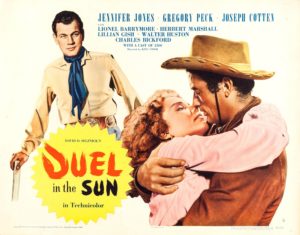
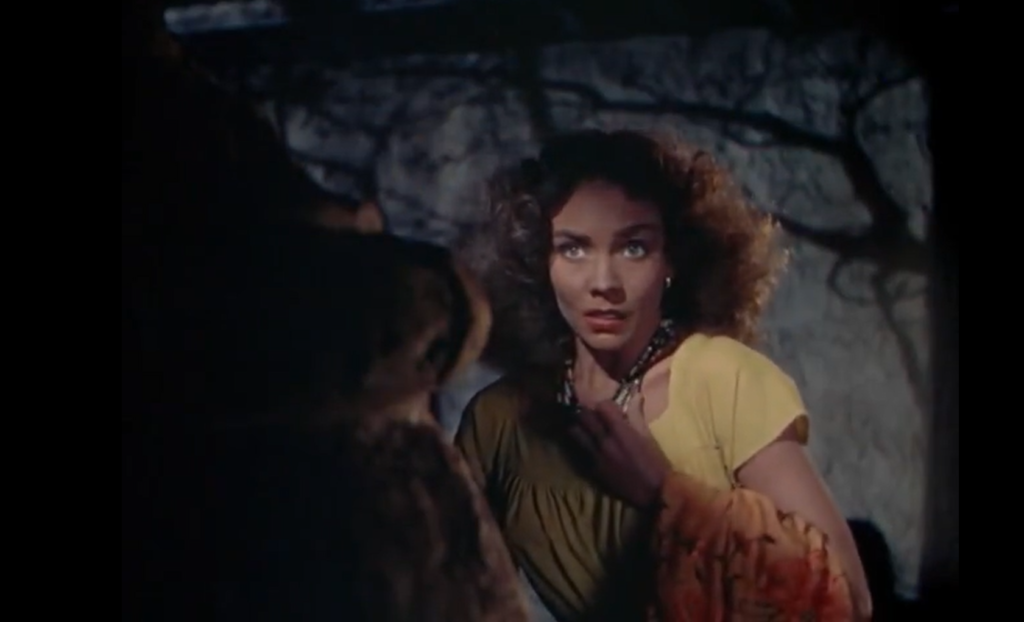
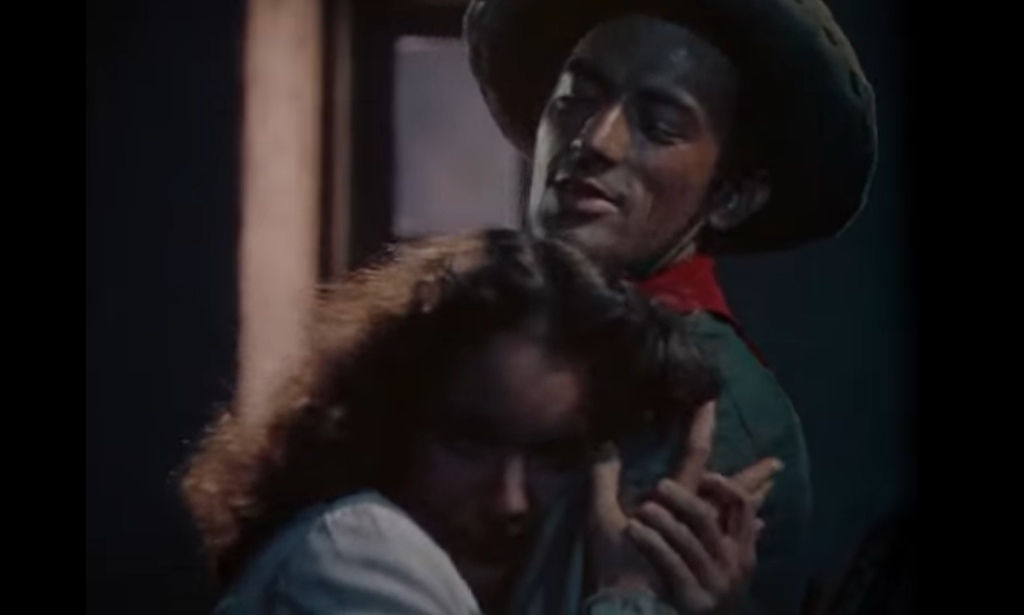
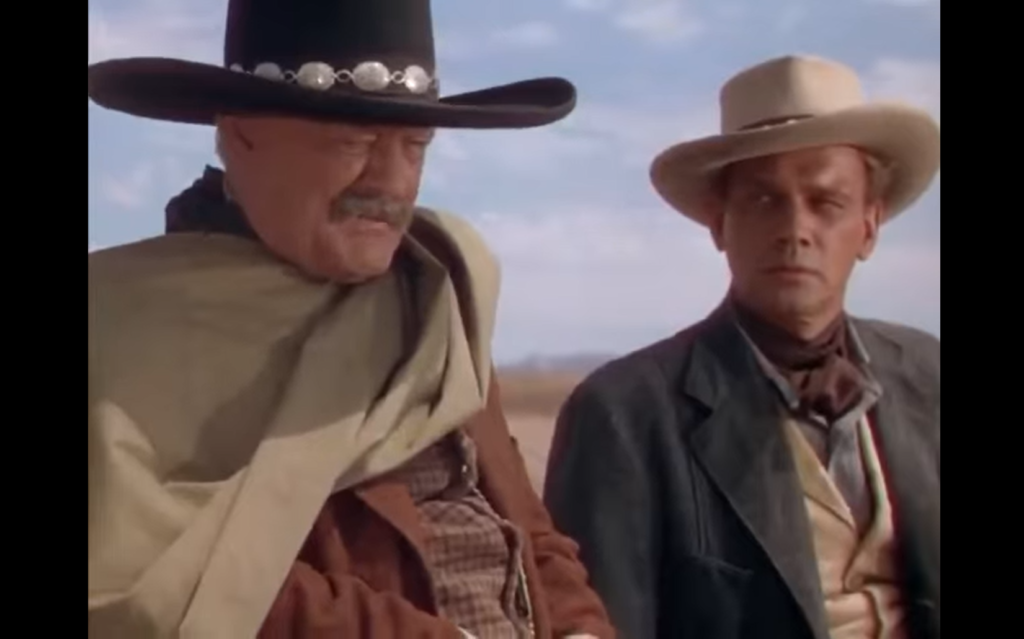
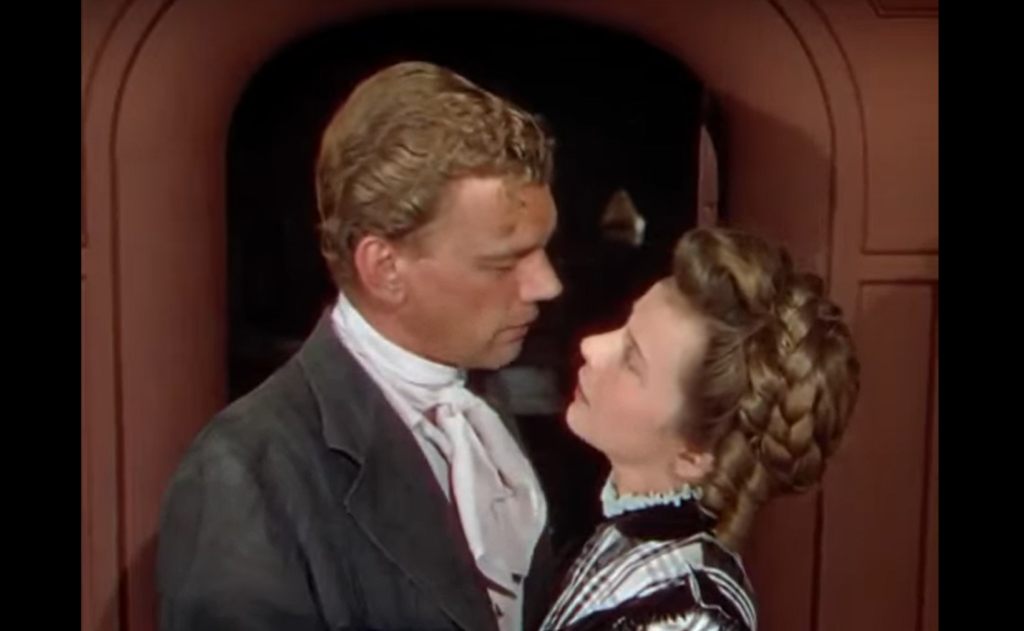
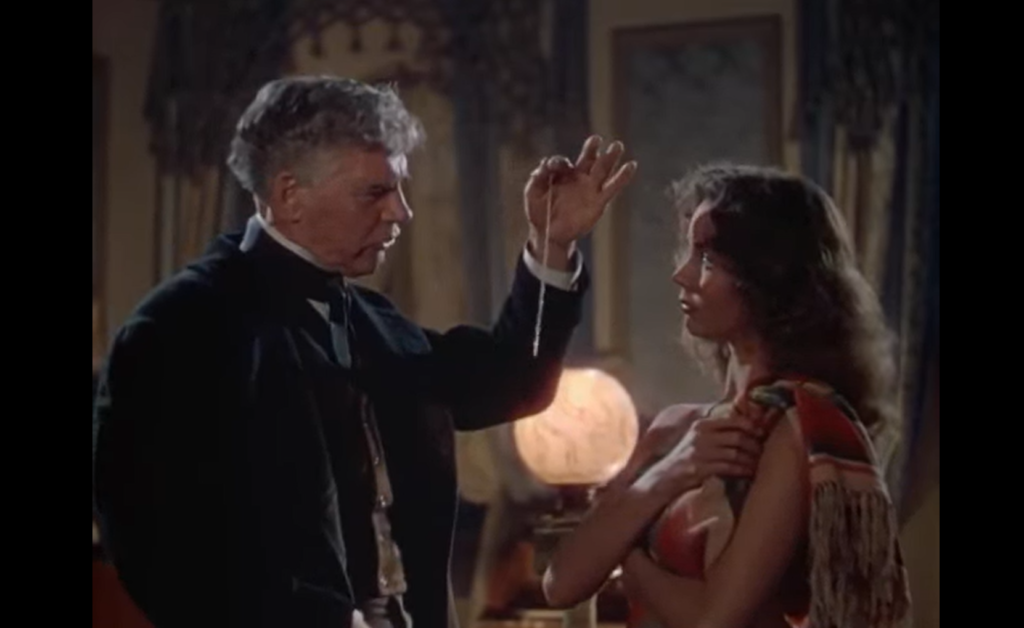
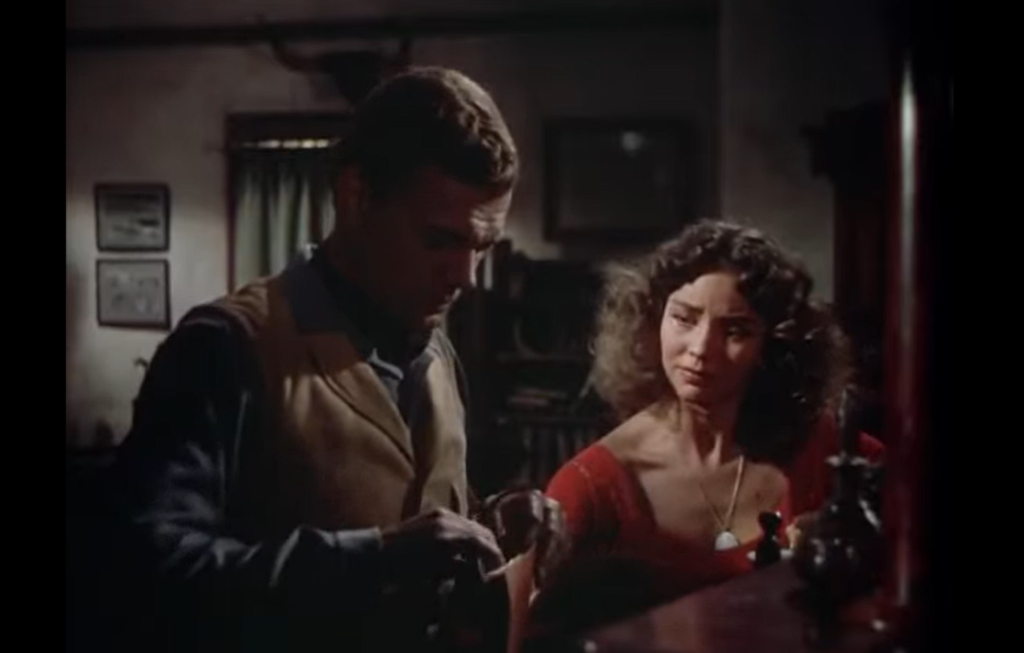
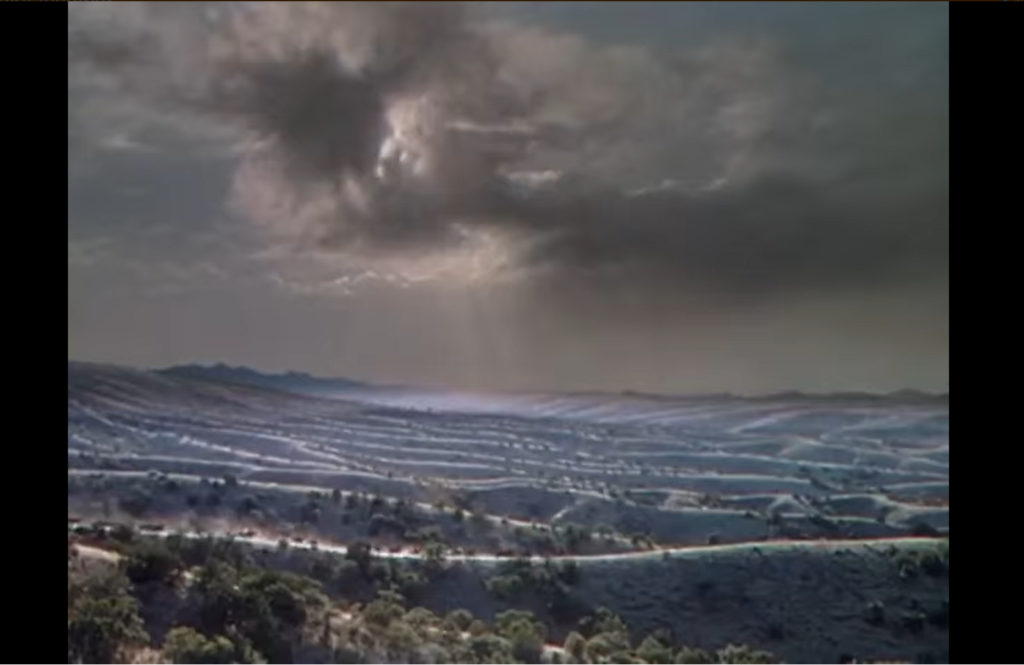
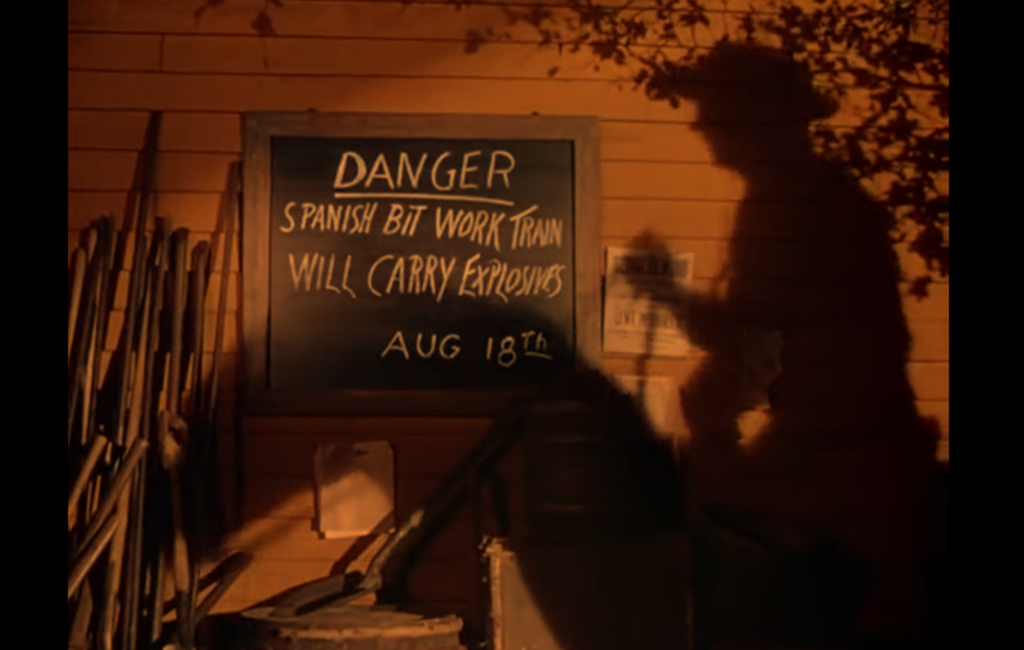
One thought on “Duel in the Sun (1946)”
Not must-see… unless you really need a few good laughs. As per my post in ‘The ’40s-’50s in Film’ (fb):
“You’re lyin’! You’re lyin’ like you *always* do!”
‘Duel in the Sun’ (1946): Good Lord! I had clearly forgotten just how bad (or, rather, how deliciously bad) this movie is! But, seeing it again, it is – without a doubt – a prime candidate for ‘Movies Best Left Untouched With A 10-Foot Pole’. Or… if you really do need a giggle-fix… look no further. To find out just how wacky things were behind-the-scenes during filming (due to – no surprise to anyone – gonzo writer / producer David O. Selznick), you can check Wikipedia or the TCM website. But it’s a little hard to pinpoint which of the actors (if anyone) makes it through this ‘well-meaning’ racist claptrap unscathed or untarnished.
~maybe Herbert Marshall as Jennifer Jones’ father; he gets to die early, at least. Or maybe Joseph Cotten – who represents sanity and intelligence. Lionel Barrymore gets the lion’s share of the Republican-soaked bile (“How’d they come to name you ‘Pearl’? Couldn’t-a had much eye for color, could they?”). Lillian Gish spends the whole flick regretting she once loved Barrymore – oh, say, about 35 years ago. She also gets to say to Jones: “Here, let me look at you!” (Who says that when they’re standing in front of a person… looking at them?) Walter Huston revives his revivalist manure from ‘Rain’ and Butterfly McQueen repeats her role from ‘Gone With the Wind’. Every time she talks, whoever she’s talking to decides it’s merciful to just cut off her verbal diarrhea in mid-sentence. As Pearl, poor Jennifer Jones just hasn’t got a prayer in terms of character issues (“I’m trash, I tell ya – TRASH!”). And the less said about miscast Gregory Peck’s take on sexual bravado, the better.
I perked up once – when Barrymore began to resemble our current ‘POTUS’: “Never mind that fancy legal talk; (pointing to his gun-toting thugs) *there’s* my law, right there.” But even that slight resemblance vanished with what he says soon after: “I fought for that flag; I’ll not fire on it.”
King Vidor was granted sole director credit (though several others came and went). Also credited are 3 – count ’em, 3 – directors of photography… plus one more for ‘additional photography’ (!). A real revolving-door approach to filmmaking, all around.
Fave scene: Cotten walks in on Jones and Peck – ‘in flagrante delicto’ – with the lovers not near each other and with all of their clothes on – GASP!!! … But, hell, the whole last 30 minutes can also be a viewer fave: it’s no-holds-barred buffoonery!